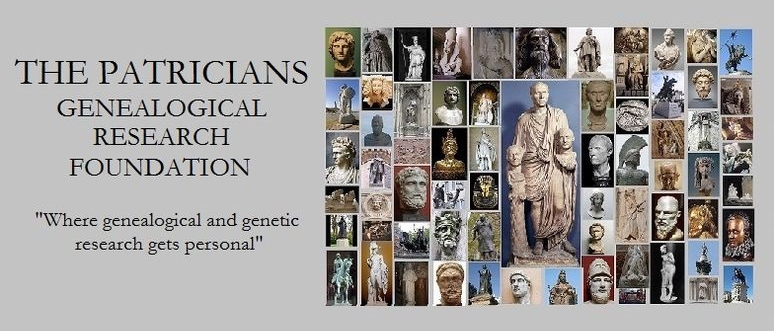



by Alphonse de Neuville (1836–85)


Tonantius Ferreolus (418 – 476) served as one of the last Gallo-Roman praetorian prefects of Gaul at the time Attila and his Hunnic army invaded Gaul. Before the invasion, he was instrumental in allying independent Gallic barbarian armies, including those led by Merovech Meroving (411 – 458), grandfather of Clovis I Meroving (466 – 511) 1st King of Franks, and Theodoric I Balthus (393 – 451) King of the Visigoths under the banner of Roman General Flavius Aetius for the successful defense of the Roman territory at the Battle of Châlons in 451.
Attila’s decisive defeat at the Battle of Châlons marks a major turning point in human history since his victory might have spelled the end of Western Civilisation. Accordingly, it’s ranked as the 6th most decisive military battle ever fought in Sir Edward Shepherd Creasy’s book, entitled The Fifteen Decisive Battles of the World: from Marathon to Waterloo (1851). The following excerpt opines as to its relative significance:
“Attila’s attacks on the Western empire were soon renewed; but never with such peril to the civilized world as had menaced it before his defeat at Chalons. And on his death, two years after that battle, the vast empire which his genius had founded was soon dissevered by the successful revolts of the subject nations. The name of the Huns ceased for some centuries to inspire terror in Western Europe, and their ascendency passed away with the life of the great king by whom it had been so fearfully augmented.”
Attila was the 59th King of the Huns of the Xiongnu dynasty that had an 18th-century BC origin in the immediate region centered in and around Mongolia. The primogenitor of the lineage was named Chungvi. During the 2nd-century BC, one of his descendants married the granddaughter of the founder of the Chinese Han Dynasty, namely, Emperor Gaozu of Han (256 – 195 BC).
Before contact with the west during the 5th-century AD, the Huns were historically warlike nomads who regularly blundered foreign settlements, initially around China’s northwestern border, as they eventually migrated en masse westward toward eastern Europe through eastern Asia, finally settling in Hungary just before or around the time of Attila’s advent. Fighting from horseback, mainly armed with bows and arrows and lances, few armies could repel Huns’ invasion of their lands, much less defeat them in battle.
After Attila’s death, the Huns living in Europe began to adopt the traditional customs of contemporary Europeans, such as those focused on trade and bartering.
For good, bad, or indifferent, the aftermath of Attila’s egregious menace in Roman occupied lands may well have been one of contributing factors leading to the subsequent total collapse of the Western Roman Empire twenty years after his demise. Be that as it may, his unsuccessful campaign to conquer all of Italy after the Battle of Châlons more than probably put the Roman Empire on its heels, so to speak, for good. Anyway, it’s academic as Attila’s planned reinvasion campaign never came to fruition due to his death.
He’s ranked #168 in Hart’s Most Influential People in History – Top 500 List (125).
Related ancestral blog articles
Attila the Hun, 59th King of Huns
Birth (unknown)
Death 453 Pannonia, Hungary
Ancestry.com citation/Lineages
The Patricians, A Genealogical Study – Ebook Editions (Epub, PDF & Kindle) US$5.95


Author at Harrod’s Deli – London
Steven Wood Collins (1952 – ) Antiquarian, Genealogist, Novelist


18 replies on “Attila the Hun “The Scourge of God” ( – 453) 59th King of Huns”
[…] Attila the Hun ( – 453) 59th King of Huns 3GGF […]
LikeLike
[…] Attila the Hun ( – 453) 59th King of Huns 3GGF […]
LikeLike
[…] Attila the Hun ( – 453) 59th King of Huns 3GGF […]
LikeLike
[…] Attila the Hun ( – 453) 59th King of Huns 3GGF […]
LikeLike
[…] Attila the Hun ( – 453) 59th King of Huns 3GGF […]
LikeLike
[…] Attila the Hun ( – 453) 59th King of Huns 3GGF […]
LikeLike
[…] Attila the Hun ( – 453) 59th King of Huns 3GGF […]
LikeLike
[…] Attila the Hun ( – 453) 59th King of Huns 3GGF […]
LikeLike
[…] Attila the Hun ( – 453) 59th King of Huns […]
LikeLike
[…] Attila the Hun ( – 453) 59th King of Huns 3GGF […]
LikeLike
[…] Attila the Hun ( – 453) 59th King of Huns 3GGF […]
LikeLike
[…] Attila the Hun ( – 453) 59th King of Huns 2GGF d […]
LikeLike
[…] Ferreolus (418 – 476) served as one of the last Gallo-Roman praetorian prefects at the time Attila (406 – 453) and his Hunnic army invaded […]
LikeLike
[…] Attila the Hun “The Scourge of God” ( – 453) 59th King of Huns […]
LikeLike
[…] Attila the Hun “The Scourge of God” ( – 453) 59th King of Huns […]
LikeLike
[…] – 458), the primogenitor of the Merovingians, contributed to the Roman defeat of Attila the Hun at the Battle of Chalons in 451. Tonantius Ferreolus (418 – 476), Praetorian […]
LikeLike
[…] Attila the Hun “The Scourge of God” ( – 453) 59th King of Huns […]
LikeLike
[…] – 451). He died at the Battle of Chalon leading his Visigoth forces in the fight to repel Atilla the Hun‘s invasion army. Egilon was also Theodoric’s direct […]
LikeLike